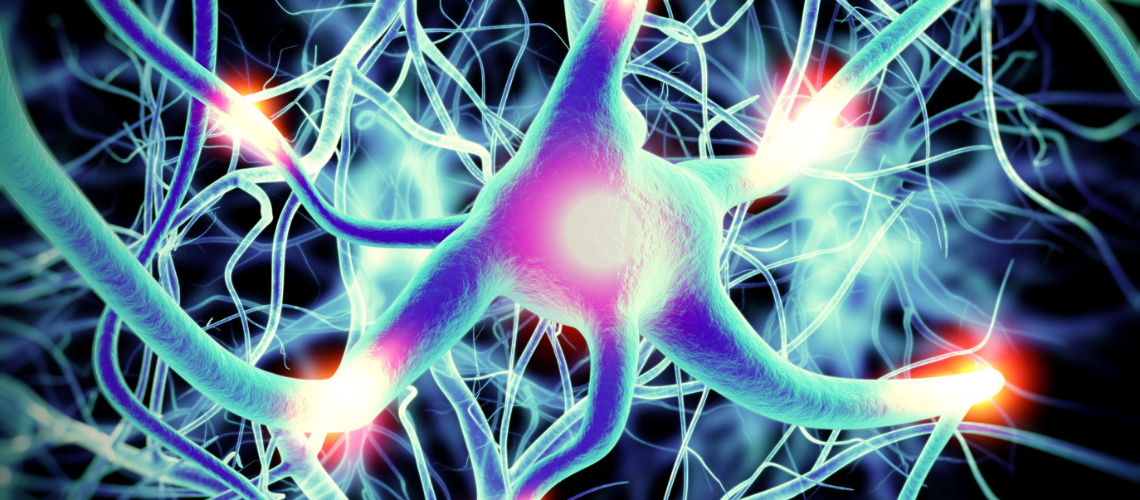Neuropathy, also known as peripheral neuropathy, affects an estimated 20 million people in the United States. According to the American Association of Neuromuscular & Electrodiagnostic Medicine (AANEM), this debilitating condition is the leading cause of disability in the United States and one of the most common chronic neurological diseases. Due to a complex array of symptoms, neuropathy is often misunderstood, misdiagnosed, and inadequately treated.
Effecting the peripheral nervous system – the communication highway in the body – neuropathy can bring body functions to a screeching halt with a mild fender bender. Recognizing early signs/symptoms, receiving an early and accurate diagnosis, and providing proper treatment are critical to preventing and reducing the progression of this medical condition.
What is Neuropathy?
Neuropathy is the damage or dysfunction of one or more nerves within the peripheral nervous system. Known as the two-way communication highway within the body, the peripheral nervous system is a network of nerves that send signals between the brain and spinal cord to other parts of the body and back again.
When neurons (nerve cells) becoming damaged or destroyed it causes a disruption in the communication highway. A disruption in nerve signaling can occur in various ways:
- Loss of signals that normally occur (like a traffic light being out)
- Inappropriate signaling when there shouldn’t be any signaling occurring (like a car coming in the wrong direction)
- Errors that distort the message being sent (like a sun glare on a road sign)
Signs and Symptoms of Neuropathy
Signs and symptoms are determined by the type of nerves involved – motor nerves, sensory nerves, or autonomic nerves – as well as the locations of those nerves. Additionally, symptom onset is based on the classification of neuropathy – acute neuropathy and chronic neuropathy. Acute neuropathy has suddenly occurring symptoms, while chronic neuropathy consists of symptoms that develop slowly over time.
The most common signs and symptoms are:
- Numbness or tingling in hands or feet, which can spread into the arms and legs
- Sharp, throbbing, stabbing, or burning pain
- Extreme sensitivity to touch or an inability to feel pain, pressure, temperature, or touch
- Loss of coordination or falling
- Not being able to feel things in the feet or hands – like the feeling of wearing socks or gloves
- Muscle weakness – difficulty walking or moving arms or legs
- Muscle twitching, spasms and/or cramps
- Loss of muscle control and/or tone, or inability to move part of the body (paralysis)
- Pain during nonstrenuous activities – such as putting weight on the feet or when feet are under a blanket
Additional signs or symptoms when the autonomic nerves are affected are:
- Low blood pressure or abnormal heart rate – causing dizziness when standing up, fainting, or lightheadedness
- Excessive sweating or not being able to sweat
- Issues with bladder, digestion, and bowels
- Heat intolerance
What Causes Neuropathy?
Neuropathy does not have one direct cause. It can be caused by a variety of conditions or events. Most instances of neuropathy are acquired and are either symptomatic or idiopathic. Symptomatic instances are those resulting from another disorder or condition. Idiopathic have no known cause.
Symptomatic acquired causes include:
- Trauma
- Diabetes
- Vascular and blood problems
- Systematic autoimmune diseases
- Autoimmune diseases
- Hormonal imbalances
- Kidney and liver disorders
- Nutritional or vitamin imbalances, alcoholism, and exposure to toxins
- Tumors
- Medications
- Infections
How is Neuropathy Diagnosed?
The complex array and variability of symptoms often leads to misunderstanding, misdiagnoses, and inadequate treatment. Diagnosis of neuropathy consists of several variables. The most common variables utilized to diagnose neuropathy include:
- Medical history
- Physical and neurological exams
- Body fluid tests
- Genetic tests
A healthcare provider may order additional tests to help determine the nature and extent of the neuropathy. These additional tests could include:
- Physiologic tests of nerve function – nerve conduction velocity (NCV) and electromyography (EMG)
- Neuropathology tests of nerve appearance – nerve biopsy and neurodiagnostic skin biopsy
- Autonomic testing – quantitative sudomotor axon reflex (QSART)
- Radiology imaging tests – magnetic resonance imaging (MRI) and computed tomography (CT)
Preventative Measures
Preventative measures can be taken to eliminate the possibility of neuropathy, as well as reduce the progression of the medical condition.
- Reducing the possibility of injuries
- Properly treating and managing existing medical conditions – kidney, liver, or thyroid disease; diabetes; alcoholism; and rheumatoid arthritis
- Adopt healthy living habits – take care of feet and hands, eliminate tripping hazards by decluttering floors, stop smoking, maintain healthy lifestyle, and review medications
- Limit exposure to toxins
Treatment Options
According to the National Institute of Neurological Disorders and Stroke (NINDS), more than 100 types of peripheral neuropathies have been identified. Therefore, treatments for neuropathy varies based on the type of nerve damage, symptoms, and location. Addressing the causes of a neuropathy and correcting them can result in the resolution of the neuropathy itself – allowing nerves to recover and regenerate. Medications, local anesthetics, lidocaine patches or creams, surgery, and transcutaneous electrical nerve stimulation (TENS) are all treatments that have been utilized to prevent and reduce the progression of neuropathies.
Are you experiencing signs and symptoms of neuropathy? Roseman Medical Group can help you identify the cause, as well as provide an individualized treatment plan. Our healthcare providers provide quality, empathic, and patient-centered care. Contact us at 702-463-4040 to schedule an appointment.
Article by Kristine Campo


